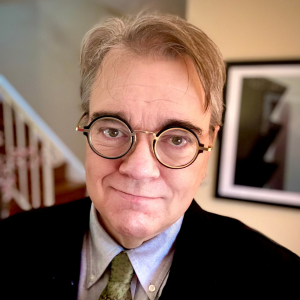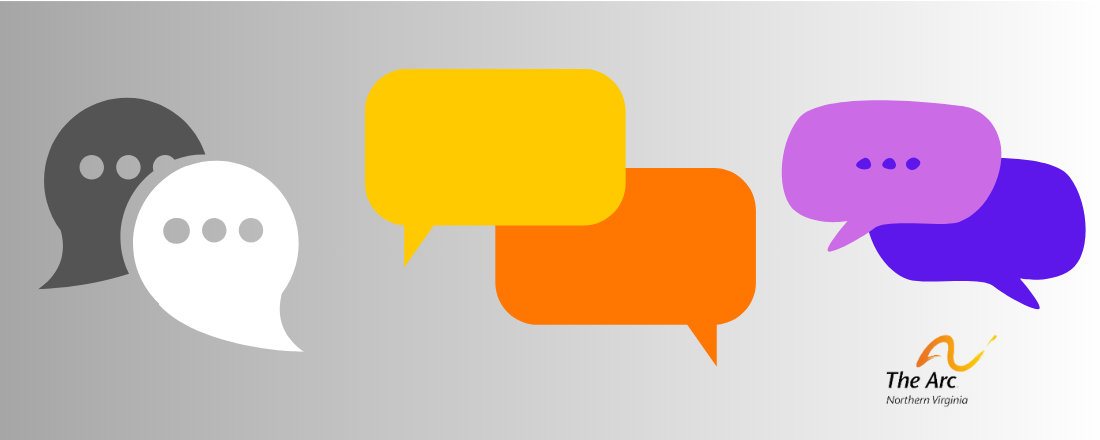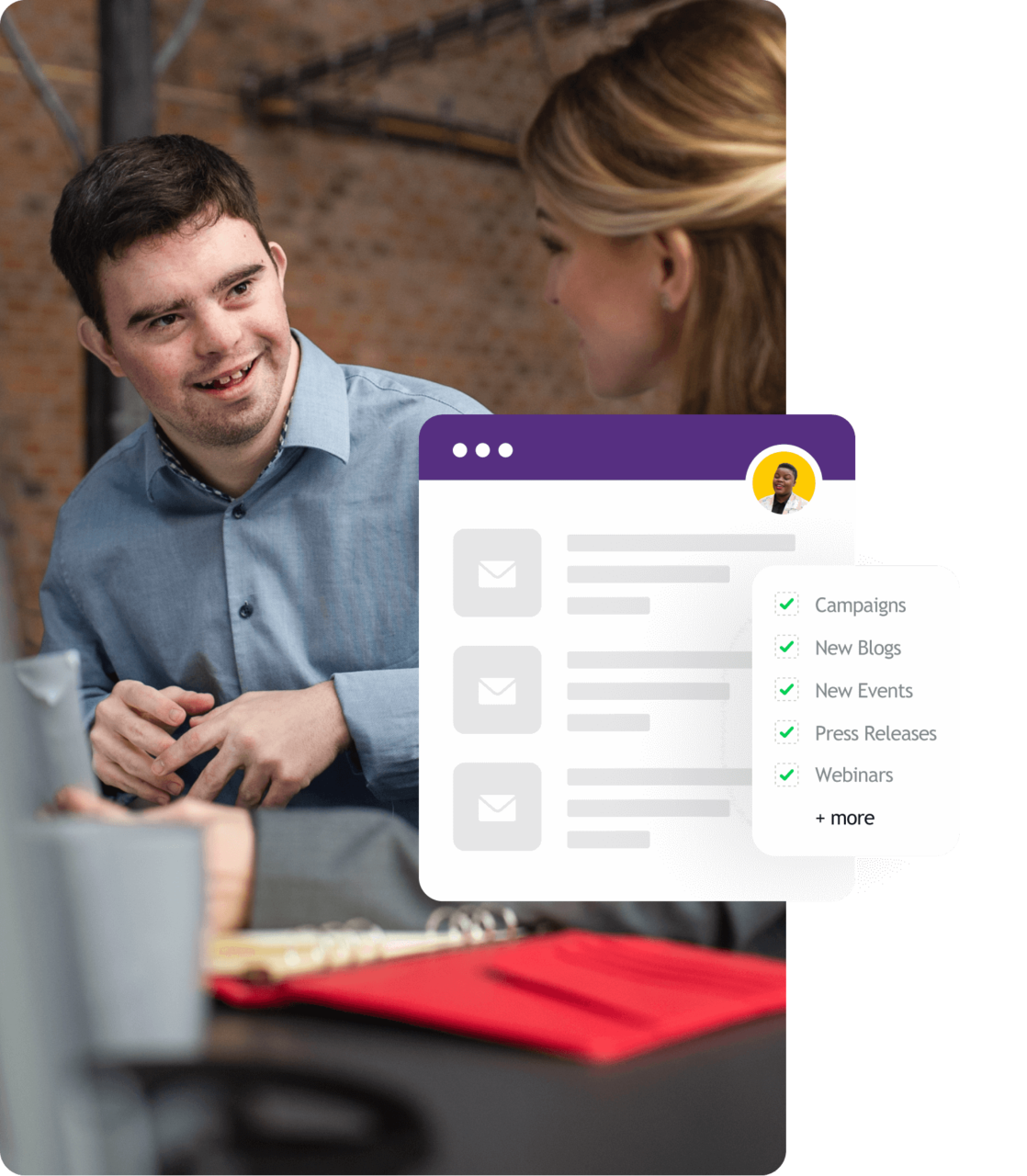
Rob Hudson is a Frank Trippett Advocacy and Outreach Fellow, and Community Outreach Associate for The Arc of Northern Virginia. Rob’s advocacy on behalf of his daughter, Schuyler, who has a rare disorder called polymicrogyria, has guided his personal philosophy for the past twenty years.
A Question of Language
When we talk about advocacy, it’s easy to get caught up in the feel-good parts. This is especially true if, like me, you are advocating for a person or a community that you love but whose situation or condition you do not share. That was true even before I came to work for an organization whose entire mission centers on changing lives for the better every day.
Those of us who consider ourselves allies to the disability community hope we’re representing their needs and wants accurately and fairly. Until relatively recently, however, those discussions have usually centered on what we believed to be correct and appropriate.
One of the most positive changes in disability advocacy, in my opinion, has involved the increasing belief that members of the disability community should be at the center of that narrative. Perhaps the most obvious place we see growth is in the language we use to talk about that community. The nuance of the language we use can be challenging, but keeping up with it can be one of the most effective ways of being a strong advocate. Words matter, as we know. Whose words they are, as it turns out, may be the most important thing of all.
I recently reached out to members of our staff who have disabilities to get their thoughts on the language we use when we talk about disabilities. I was pleased to hear from our newest team member, Daniel Soya, a Program Specialist with the Tech for Independent Living team.
“Our disability arrives second to who we are,” he said. “Let others get to know you first. Our authentic self is where others will see our true value. We are more than any struggle we may face or possess in life, let alone our disability.”
“Placing any label or definition of who we are or how we live only limits us and our true potential,” Soya continued. “Thinking or living differently does not make us less than, but increases our strength as we learn to adapt to any surrounding a little differently. We can teach and guide others based on our life experience without limiting and defining ourselves to small boxes.”
For organizations like ours, Person-First Language (PFL), a format used by most governmental and non-profit entities, probably represents a reasonable starting place and a meaningful commitment to showing respect when talking to and about the community for which we work so tirelessly. But it’s not a perfect solution.
I turned to Claire McTiernan, another TFIL Program Assistant, for her thoughts on the differences between Person-First Language and Identity First Language (IFL), which has increasingly been championed by both individual self-advocates and their representative organizations. I asked her to begin by describing the two competing philosophies behind PFL and IFL.
(For context, an example of PFL would be “a person with a disability”, whereas IFL might be “disabled person.”)
“The philosophy behind Person-First Language (PFL) is that people with disabilities should be seen as people first,” she said. “Putting the word ‘person’ before ‘disability’ emphasizes someone’s humanity. Historically, disabled people have been frequently dehumanized, so I can see the logic there.
“Meanwhile, proponents of Identity-First Language (IFL) believe that disability is an identity, similar to race, gender, and sexuality. Disability is an integral part of who someone is and cannot be divorced from their personhood. Being disabled is more than an affliction or diagnosis; it affects how you view and interact with the world.”
I told Claire that when I first became involved with disability issues and advocacy twenty years ago, there was a narrative amongst the most public voices that PFL was a universal standard that everyone needed to use. I said I was bothered at the time because the people we were hearing from were frankly mostly voices like mine, dedicated people who either worked in the disability community or were parents of disabled children.
“I think it’s much clearer now that those discussions never should have centered primarily on our perspectives,” I said. “Now the narrative seems to be much more focused on self-advocates speaking from a place of disabled life experience.”
“You are absolutely right that this conversation should have centered people with lived experience decades ago, and that’s certainly how it should be now,” said Claire. “If you want to be a good ally to the disability community or any other marginalized community, the best thing you can do is include us in the conversation and amplify our voices.
“One of the main ideas within disability studies is that disability is a socio-political identity rather than a diagnosis,” she continued. “Disability can be fluid and ever-changing. If most of us live long enough, we’ll experience some sort of temporary or permanent disability.
“Despite having a disability and using a wheelchair for all my life, I didn’t start identifying as disabled until I was 19. Compulsory able-bodiedness is a hell of a drug. Through learning disability theory and interacting more with the disability community on Twitter, I started unraveling my internalized and lateral ableism, which did wonders for my mental health. Pretty much everything I read and everyone I talked to used identity-first language.
“Unpopular opinion: If you’re not a member of the disability community, respectfully, your opinion about how we describe ourselves is irrelevant. Some disabled people have preferences; others don’t. Personally, I default to IFL because that’s what I’ve used the most and seen used the most by others who are like me. However, I’m fine when someone uses PFL to describe me.
“If someone describes me as ‘handicapable’ or ‘differently abled’ though, we’re going to have a problem. I’m not here for cutesy euphemisms. ‘Disabled’ and ‘disability’ are not bad words; use them.
“The disability community is so diverse that the idea of any ‘universal standard’ is kind of laughable,” she concluded. “I would say that in general, IFL and PFL are both acceptable. If you’re not sure which you should use, just ask the person you’re talking to or about.”



